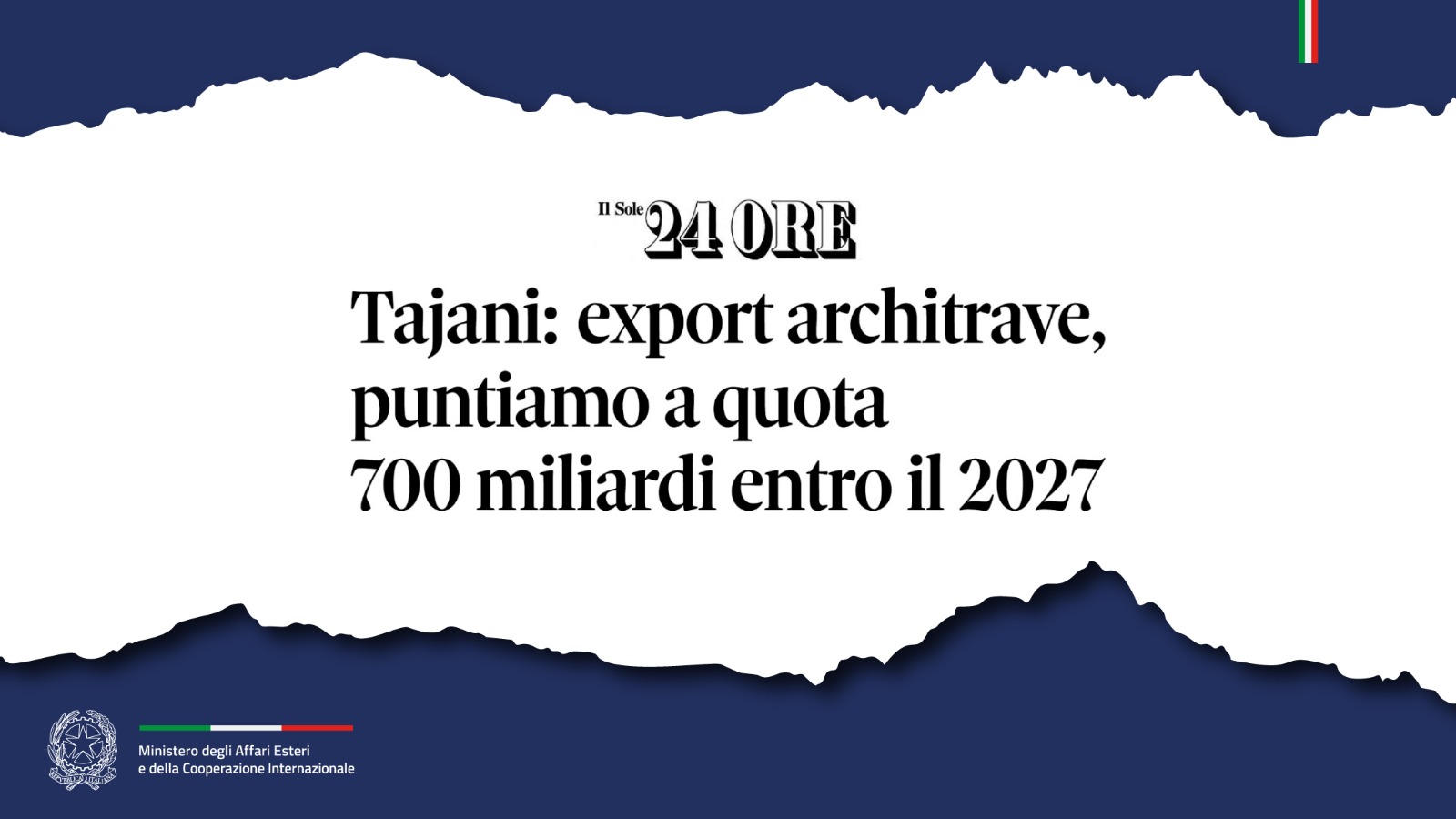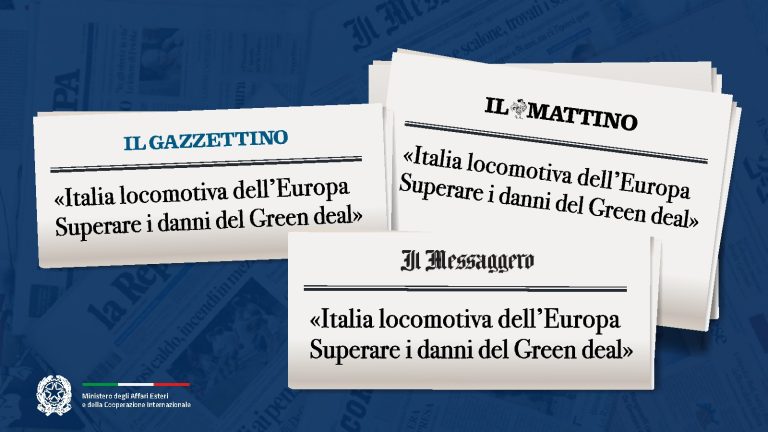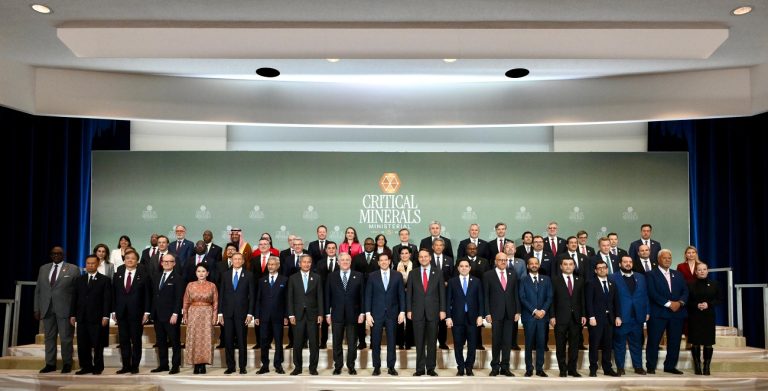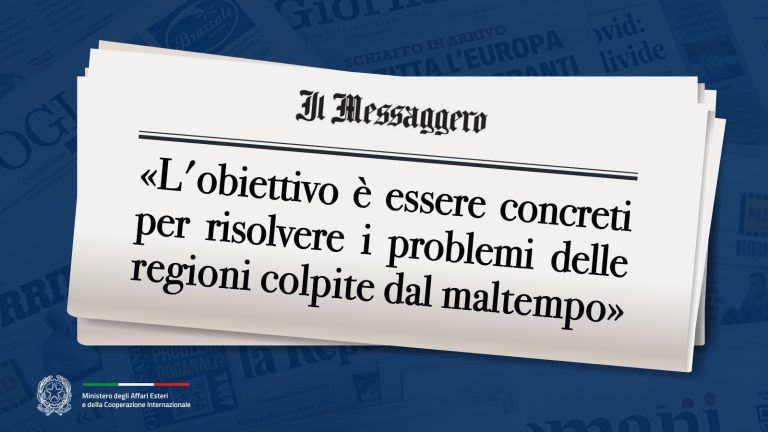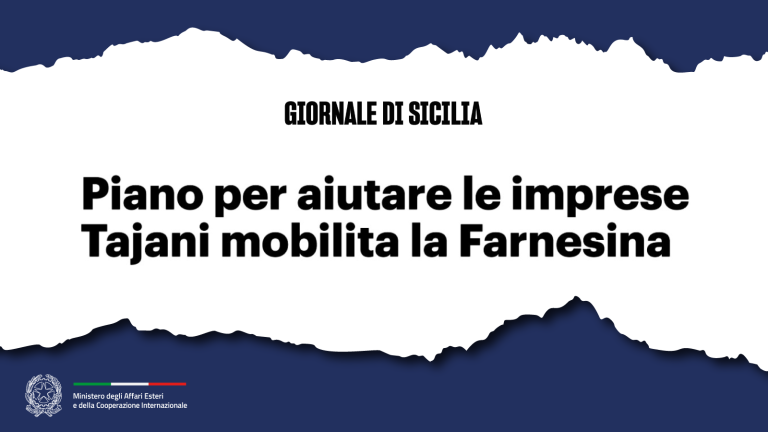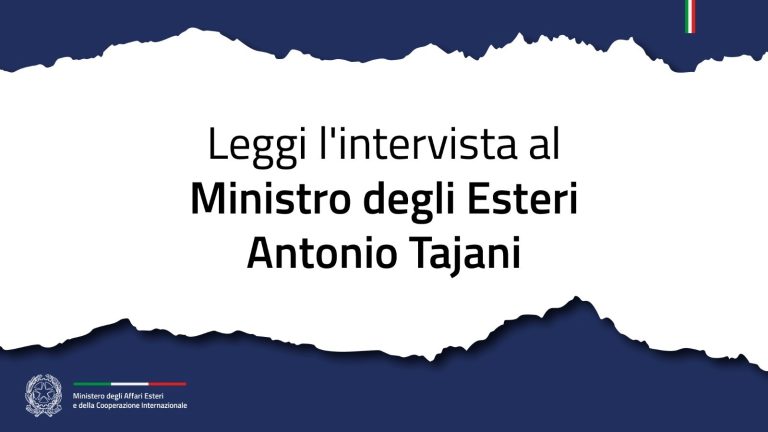“Exports generate over a third of Italy’s GDP and are the cornerstone of our economy. With EUR 626 billion in exports recorded last year, Italy confirms itself as one of the most dynamic economies globally. In the first part of the year, we even surpassed Japan in terms of export values, becoming the 4th largest exporter in the world,” said Antonio Tajani, at the start of the “National Conference on Export and Internationalisation of Companies” to be held today and tomorrow in Milan at the Bocconi University led by Francesco Billari.
It is the final stage of the “States General of Diplomacy”, or the annual meeting of all Italian ambassadors: this time the heads of Italian missions in the world will be engaged in many direct meetings with companies. A confirmation that the Ministry of Foreign Affairs has increasingly become the “Ministry of Foreign Affairs and International Trade”.
“We must ensure that the competitive drive of our companies continues and develops in a complex international context marked by numerous crises and fronts of instability,” the Minister of Foreign Affairs told Il Sole 24 Ore. “The conflict in Ukraine continues to have profound geopolitical and economic repercussions. The war in the Middle East and the continuing lack of security in the Red Sea are elements of uncertainty for those who have to sell their goods around the world.”
But, Tajani observes, there are other unknowns: “The slowdown of some European economies, in particular that of Germany, which remains Italy’s largest commercial and industrial partner and whose production chains are strongly integrated with ours, weakens the demand for Italian goods in those markets. Uncertainty about the prospects for our exports to the United States has also aroused concern in the production system in anticipation of the decisions that will be taken in the future.”
On the subject of the perceived threat of tariffs, “I would like to point out that Italy is the United States’ European ally that has the closest relationship of trust with Washington. As a government, we are committed to ensuring that the risks associated with any tariffs – risks that are still theoretical to date – do not turn into reality. This is a priority for us.”
Exports, after sustained growth for two years, are fairly stationary, but for Tajani the prospects are now good: “We continue to believe that an ambitious export target is achievable, capable of driving the Italian economy: the goal of over EUR 700 billion by the end of the legislature (2027, ed. note). For my part and for the part of the Government, I express here the commitment to work concretely so that we can reach this goal together for the Italian System”. But – he adds – there is also another objective, “that of increasing the added value of our exports, increasing the technological and innovative content of what we export, given that these products are less vulnerable to competition and will create greater income and higher quality employment”.
What are the “geographical” objectives of the products in order to reach the goal of 700 billion? “First of all, on the large trading markets our work must be increasingly sophisticated so that we reach new buyers and new customers, entering new niches where there is a hunger for “Made in Italy” products. To give examples, in the United States we have to reach many states far from the two coasts where there is still incredible room for growth. In Germany itself, which is undergoing structural change towards green technologies, we need to bring more innovative Made in Italy, which is one of our strengths. Furthermore – he adds – we are committed in Brussels to stimulating a relaunch of European industrial policies and a more pragmatic approach to climate change, which is sustainable for European industry, starting with the car industry. At the same time, we intend to support our companies in the components sector so that they can diversify their production towards sectors with a higher rate of development and expand their exports to other markets.”
China is the great unknown. “In China, we need a strategy aimed at expanding the penetration of our luxury products, which still lag behind those of other countries. Strengthening the action to support exports to the Chinese market for Italian companies has been at the heart of multiple initiatives: in September 2023 I went to Beijing to lead the Joint Government Committee, to discuss the exit from the Belt and Road Initiative and relaunch the bilateral partnership on a new basis. This was followed, in April 2024, by the convening of a business dialogue forum in Verona and the convening, in July 2024, of the Italy-China Business Forum in Beijing”.
In addition, the Minister of Foreign Affairs added, “we must be able to significantly increase our weight in new emerging markets: Latin America, South-East Asia, the Gulf countries — in addition to the political priorities of the Western Balkans and Africa. My commitment is absolute. The commercial component is always present in my missions abroad.”
The Milan conference will be an opportunity, says Tajani, to announce “two new aspects of growth diplomacy”. First of all, the “diplomacy of innovation”, which aims to promote the most innovative and high value-added component of Made in Italy which, as the data show, increasingly contributes to the success of our exports.
At a time in history when technological innovation is the main driver of development, the sectors of pharmaceuticals, biotechnology, advanced mechanics, cyber security, microelectronics, robotics, artificial intelligence, and technologies for environmental sustainability – to name but a few – contribute to placing our country on the frontier of scientific and technological progress.”
Another aspect is the “diplomacy of sport”. On this point, he recalls “the increasingly important role of sports diplomacy in the promotion of the Italian System. Sporting events of international calibre, due to their ability to attract global attention, offer a natural stage to enhance Made in Italy and to build new commercial relationships worldwide”.

